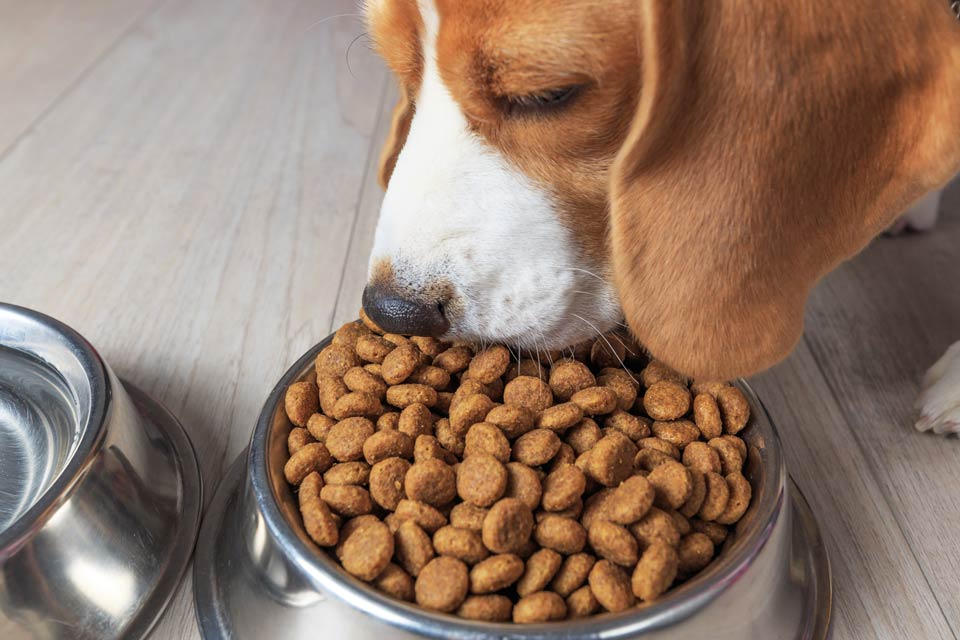Are Grain-Free Diets for Dogs Dangerous?

Veterinarians have recently noticed an uptick in a type of heart disease called DCM (dilated cardiomyopathy) in dog breeds not previously known to be prone to it. After investigating, the FDA has released a list of 16 dog food brands that are most frequently related to reports of the spike.
What Is DCM?
Dilated cardiomyopathy is a condition in which the heart muscle can't produce enough pressure in the heart chambers to adequately pump blood. The heart chamber walls become thinner and dilate, and eventually, the heart is unable to pump enough oxygenated blood to the tissues.
DCM has generally been believed to have a genetic cause because it's common in certain breeds, including boxers, Great Danes, Dobermans, and cocker spaniels.
In some cases, a nutritional deficiency has been linked to DCM, such as carnitine deficiency in some instances in boxers and taurine deficiency in some cases in cocker spaniels (Canine Dilated Cardiomyopathy (DCM), n.d.)
Learn more about DCM here: “Boxer Cardiomyopathy.”
DCM can cause congestive heart failure and death.
DCM and Grain-Free Diets
Between January 2014 and May 2019, the FDA received 524 reports of DCM in breeds not usually struck by the condition. This is a massive spike over previous years. The FDA has been working to identify the cause. While the direct link has not yet been discovered, the organization has released what it knows so far, including a list of pet food brands related to the reports.
You can see the FDA report, including lists of the dog breeds affected and the specific food brands involved, here: "FDA Investigation into Potential Link between Certain Diets and Canine Dilated Cardiomyopathy."
What Should You Do if Your Dog Is on a Grain-Free Diet?
If your dog is on a grain-free diet, particularly one of those listed by the FDA as being connected to reports of DCM in dogs, talk with your veterinarian right away. Your vet is best suited to help you make decisions for your individual dog, including deciding on whether a diet choice is necessary.
If you notice signs in your dog that may be related to DCM, including weakness, exercise intolerance, cough, or collapse, get to a veterinarian for evaluation right away.
References
- Canine Dilated Cardiomyopathy (DCM). (n.d.). Retrieved from Cornell University College of Veterinary Medicine.
You May Also Like These Articles:
Be Careful Ordering Pet Medicine Online
Is it OK for Dogs to Eat Bananas?
Why You Should Avoid Bone Treats for Your Dog
Boxer Cardiomyopathy: Arrhythmogenic Right Ventricular Cardiomyopathy
Disclaimer: This website is not intended to replace professional consultation, diagnosis, or treatment by a licensed veterinarian. If you require any veterinary related advice, contact your veterinarian promptly. Information at DogHealth.com is exclusively of a general reference nature. Do not disregard veterinary advice or delay treatment as a result of accessing information at this site. Just Answer is an external service not affiliated with DogHealth.com.
Notice: Ask-a-Vet is an affiliated service for those who wish to speak with a veterinary professional about their pet's specific condition. Initially, a bot will ask questions to determine the general nature of your concern. Then, you will be transferred to a human. There is a charge for the service if you choose to connect to a veterinarian. Ask-a-Vet is not manned by the staff or owners of DogHealth.com, and the advice given should not delay or replace a visit to your veterinarian.



